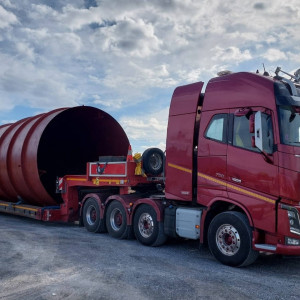Heavy road transport industry pushing for practical climate policies in Germany


As the new German government pushes to meet its ambitious climate targets, the heavy road transport industry is stepping up to ensure that environmental policies - policies which could significantly impact the abnormal loads sector - remain economically viable. Playing a central role in this process is the Federal Association for Freight Forwarding and Logistics (DSLV), which has a seat at the table of the Federal Ministry of Digital and Transport's new expert forum, Climate-friendly Mobility and Infrastructure (EKMI). Its role is to support the ministry in how it can develop tangible measures for the government's climate protection programme for the transport sector.
The EKMI is split into five working groups, including the decarbonisation of heavy road freight transport; municipal mobility & multimodality; shift to rail and combined freight transport, and use of renewable fuels.
Decarbonisation of heavy road freight transport
So how does all this affect the abnormal/oversized transports sector? The implications could be several-fold:
- Technology transition: Expect policies driving the adoption of alternative fuels or cleaner technologies, requiring investment in new or retrofitted specialised vehicles.
- Infrastructure demands: New charging/refuelling infrastructure will be needed, which must accommodate the unique dimensions and weights of abnormal loads on their specific routes.
- Operational adjustments: New regulations, like emission zones, route optimisation or permit procedures, could present challenges due to the strict planning and operational constraints of abnormal transport.
- Cost implications: The shift to greener technologies and new compliance measures may increase operational costs, potentially impacting service pricing.
The DSLV is contributing to the decarbonisation and shift to rail groups, underscoring what it calls its commitment to shaping policies that genuinely work for the industry.
Bring the perspective of the freight industry
Frank Huster, Managing Director of DSLV, is one of the forum's 25 members. He said: "For us, it is clear that the sustainable transformation of the transport sector will only succeed if climate policy measures for freight transport are practical and economically viable. We welcome the opportunity to bring the perspective of the freight forwarding and logistics industry into the policy-making process and will do so vigorously."
The forum has just held its first meeting, and these will continue throughout the summer before it reports back to the ministry, which will then pass on the findings to the government.
You just read one of our premium articles free of charge
Want full access?
Take advantage of our exclusive offer
References
- ^ See the offer (www.projectcargojournal.com)